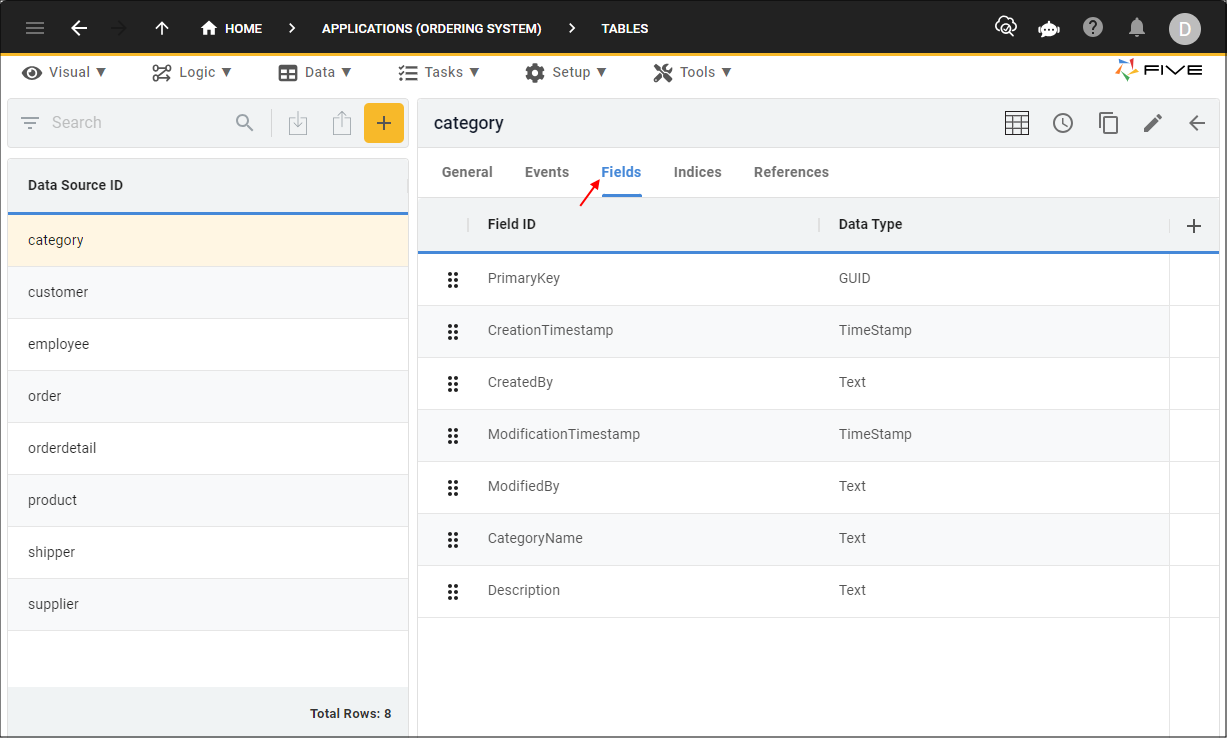Import MySQL Data Dump Into Five
Last updated 20/12/2024
How to Import Your MySQL Dump
Logging in with the role of Control will enable you to complete this process as one user.
When you create an application, Five will automatically create and establish the connection with your database in MySQL. You can either use this database to import your FileMaker database schema or add a new database. If your application has already been created, click the Manage button and proceed to the section below, Edit Your MySQL file.
Create Your Application
1. Click the Add Item button.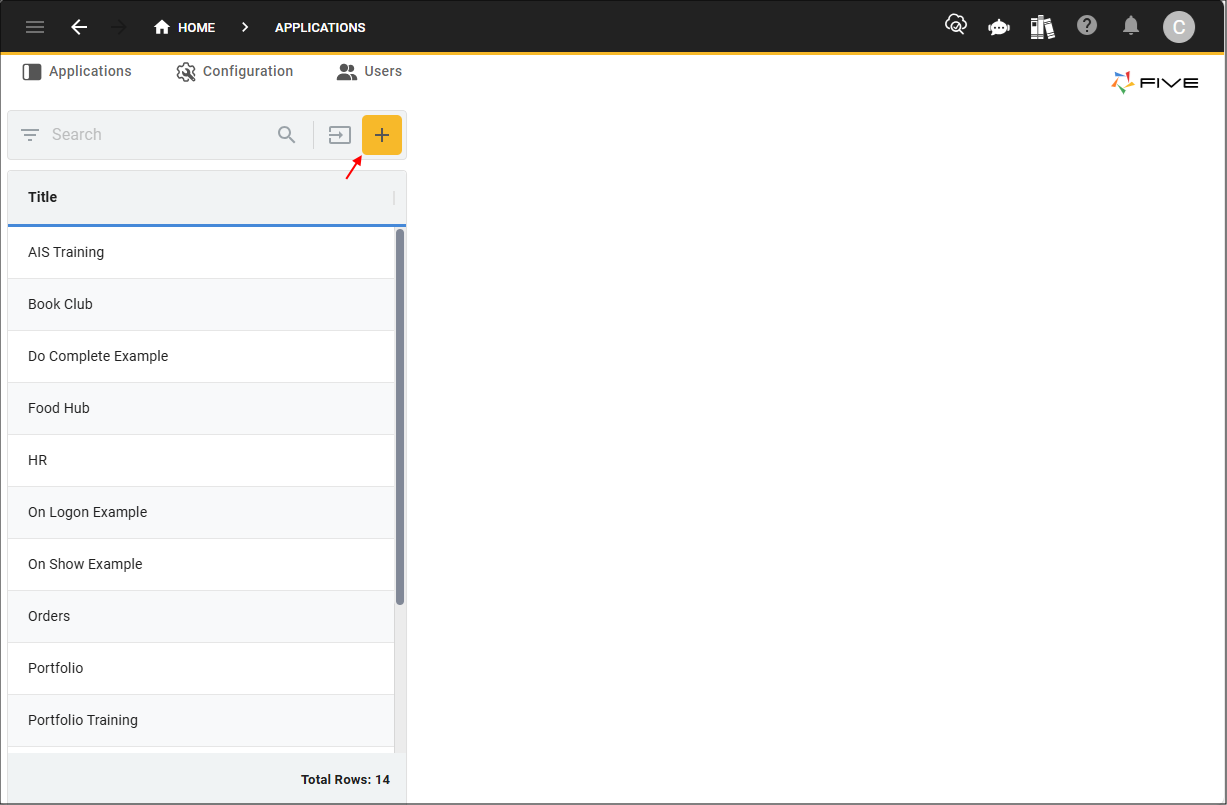
2. Type a title in the Title field.
3. Click the Save button in the form app bar.
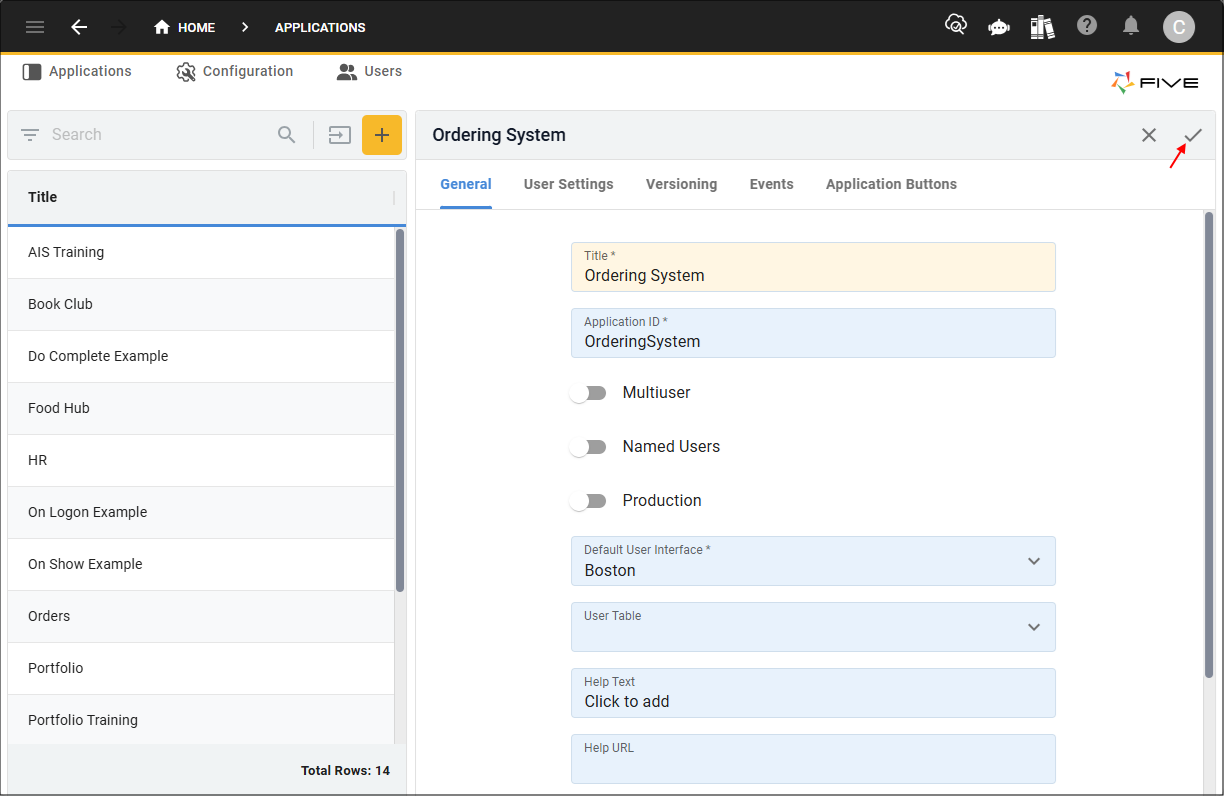
4. Click the Manage button in the form app bar.
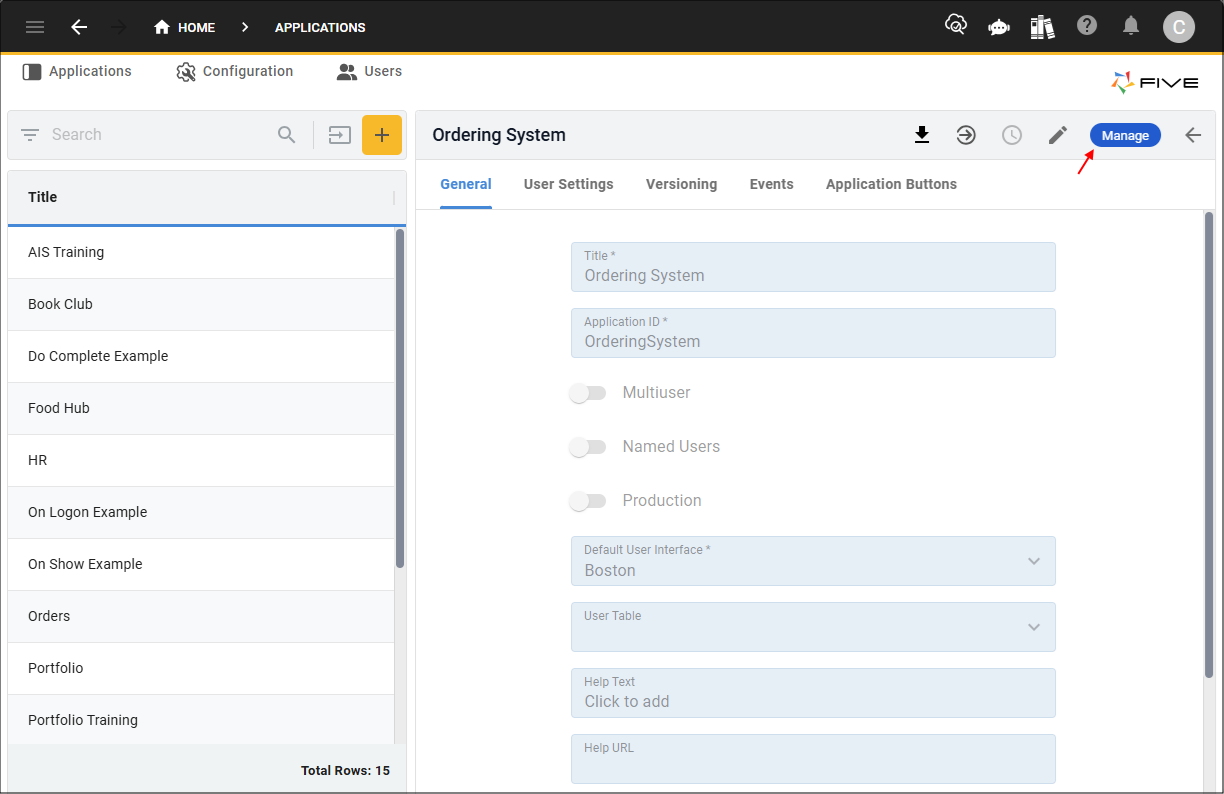
Edit Your MySQL File
The name of your database must exactly match the name in the Database ID field as Five uses this in the connection string to connect to your database in MySQL. Five appends DB to the end of the application name, this can be seen in the Databases view under the Data menu. You will need to open your MySQL script either in Workbench or your preferred text editor and edit the name in two places.
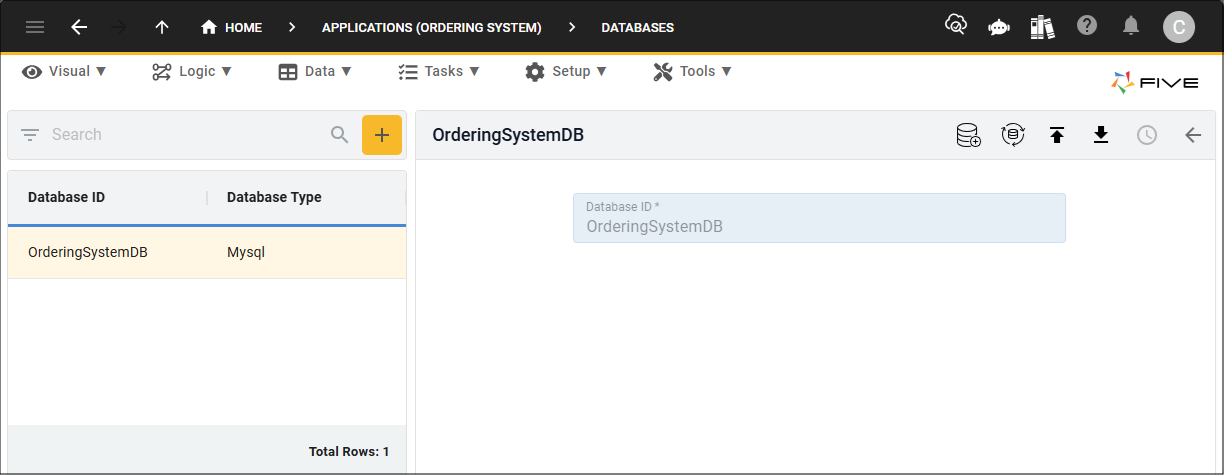
1. Navigate your files and open your MySQL script.
2. Edit the name of the database in the lines shown below.
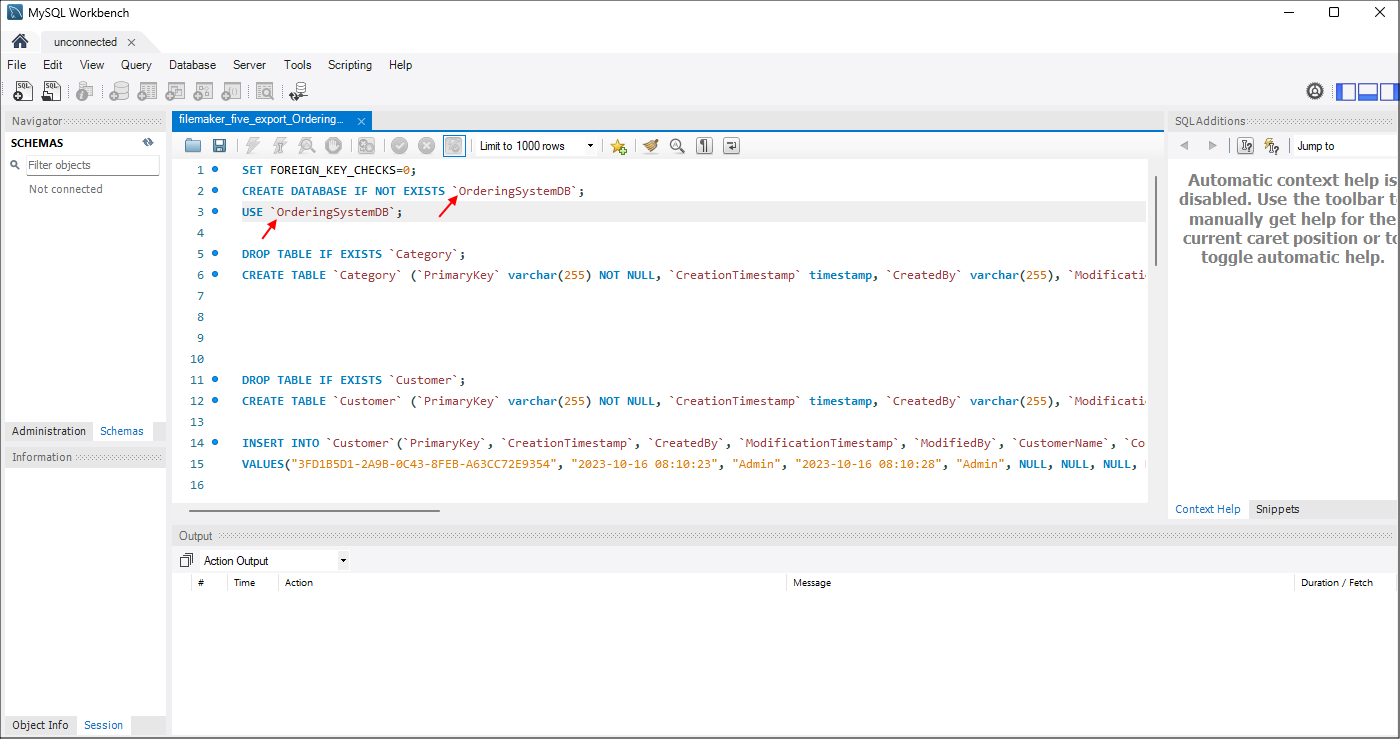
3. Save your MySQL script.
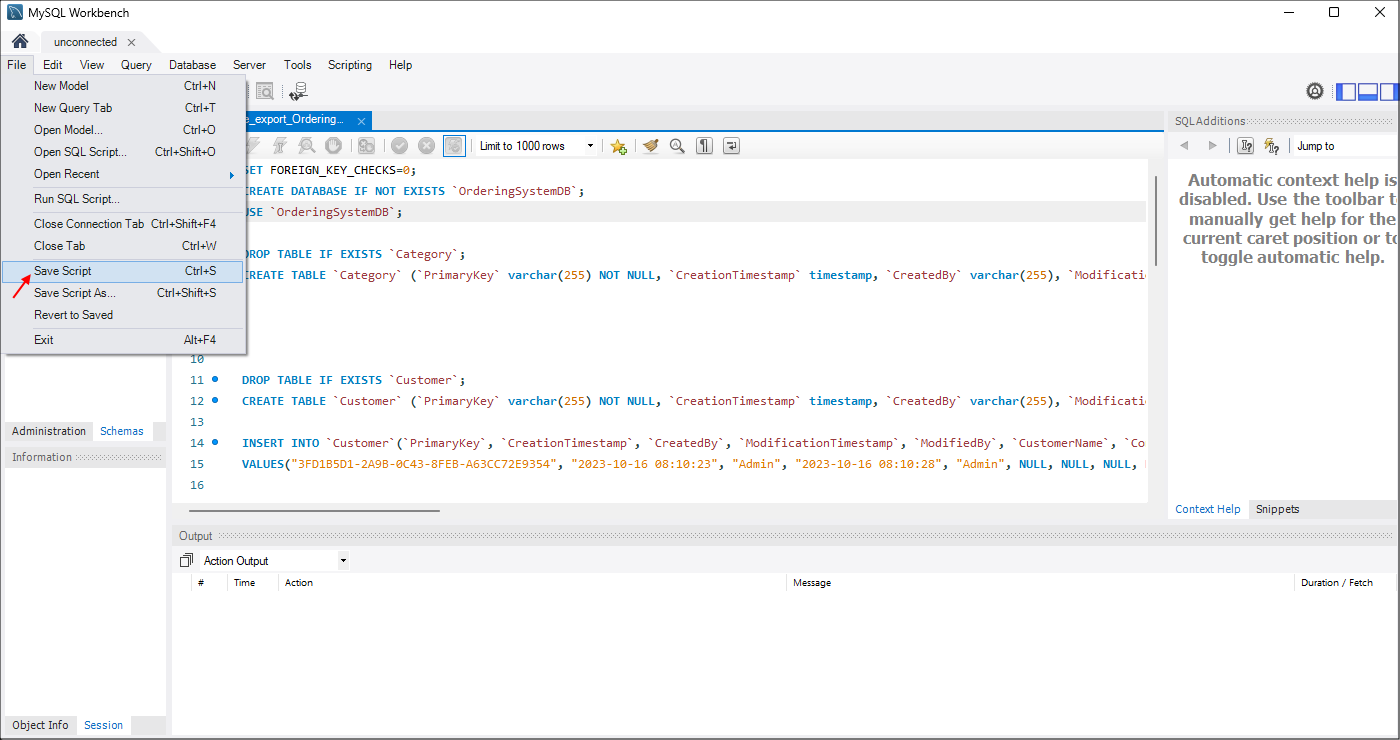
Import Your Database
1. Select Data in the menu.
2. Select Databases in the sub-menu.
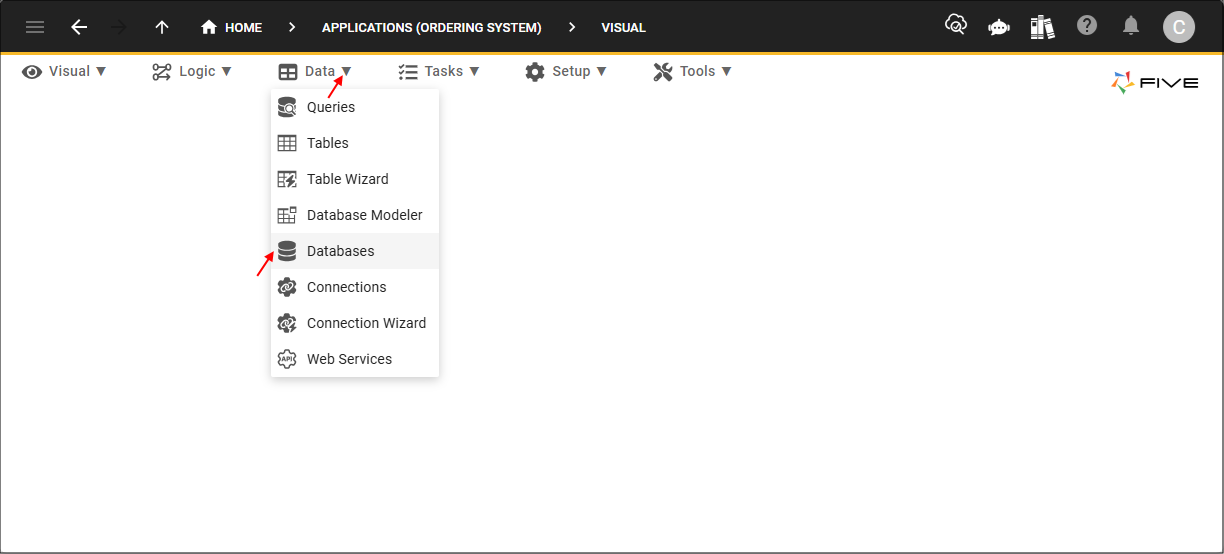
3. Select your database record in the list.
4. Click the Import Database button.
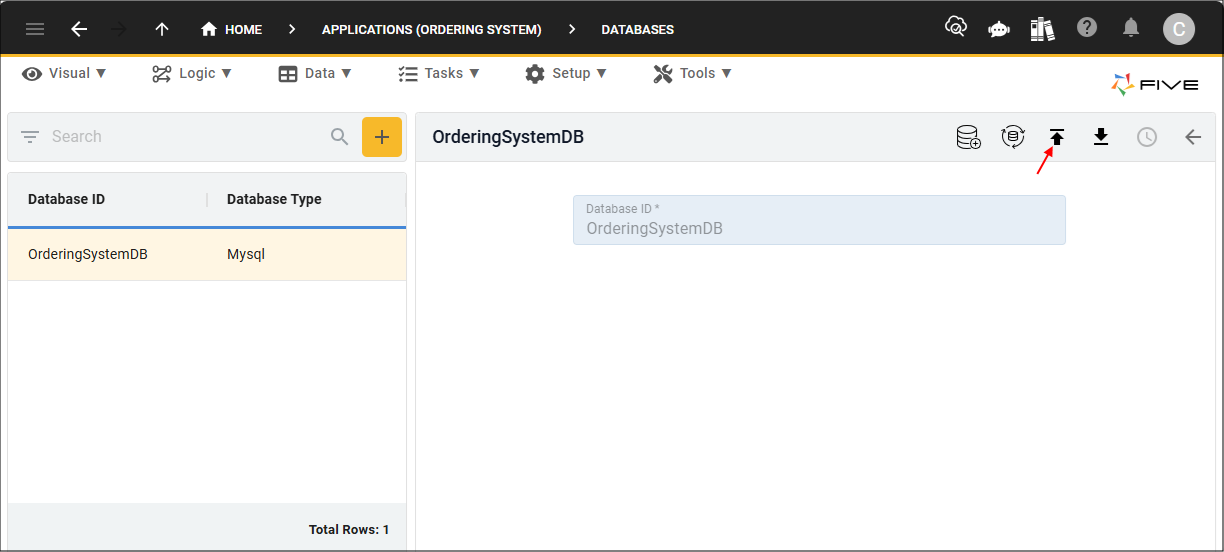
5. Click the OK button in the alert box.
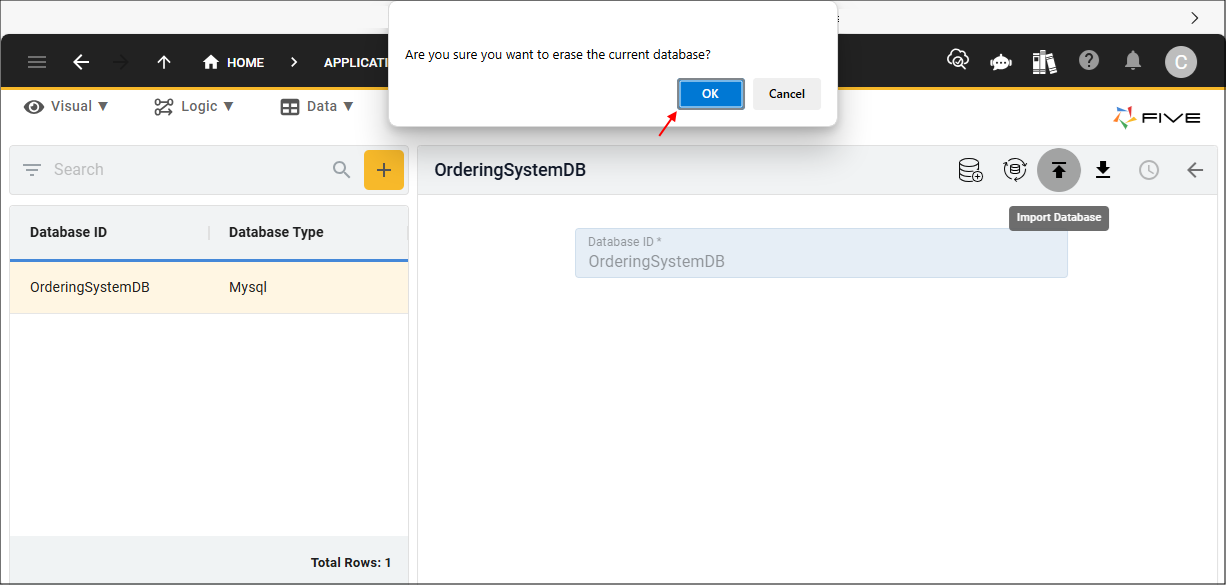
6. Navigate and open your extracted MySQL file.
7. Click the OK button.
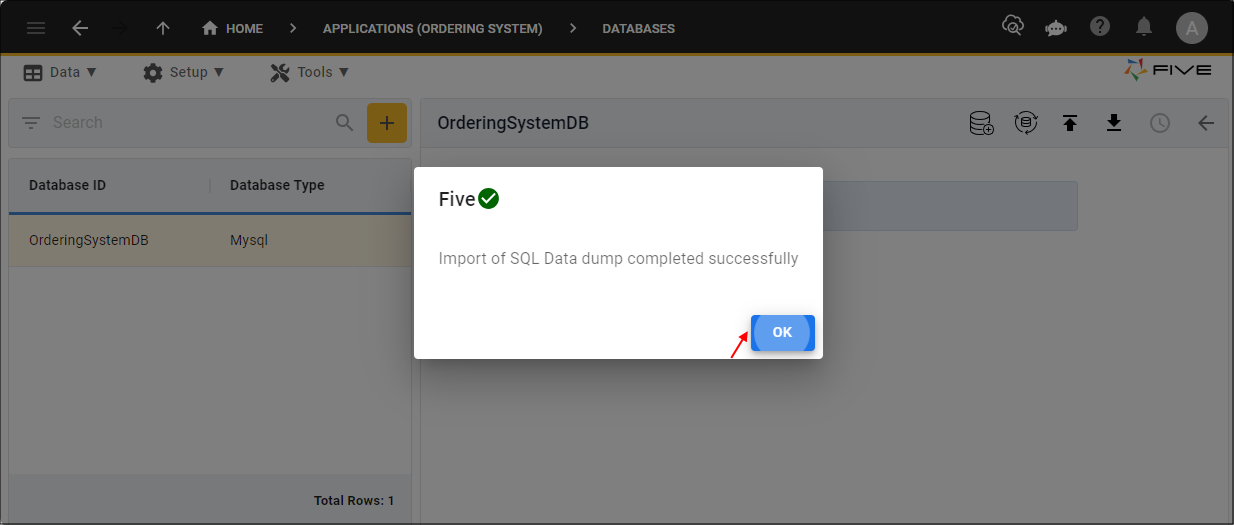
8. Click the Import Database Schema button.
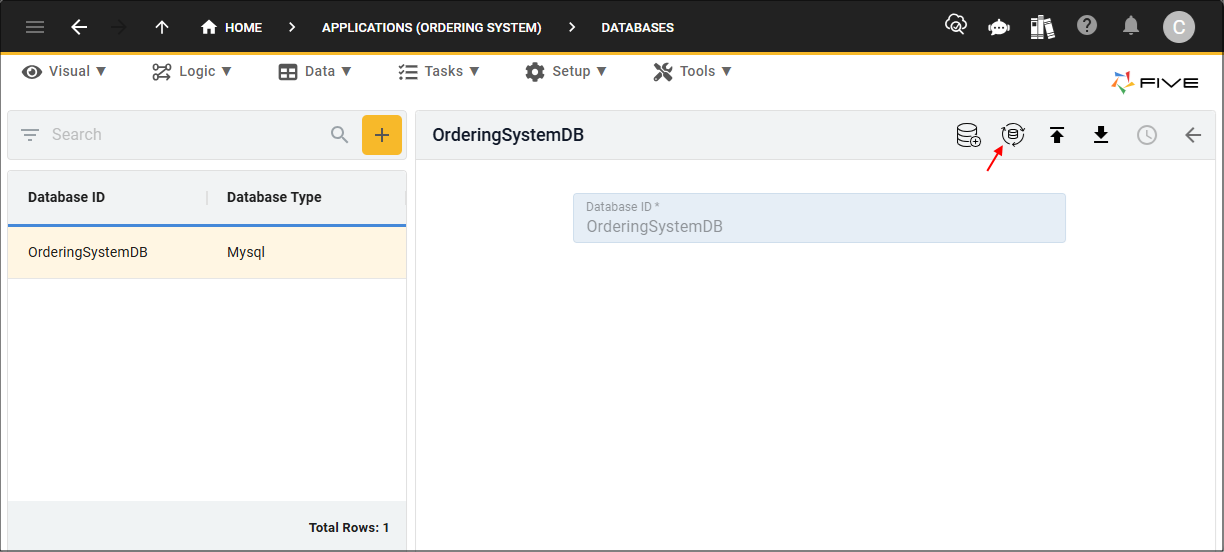
9. Click the Ok button in the alert box.
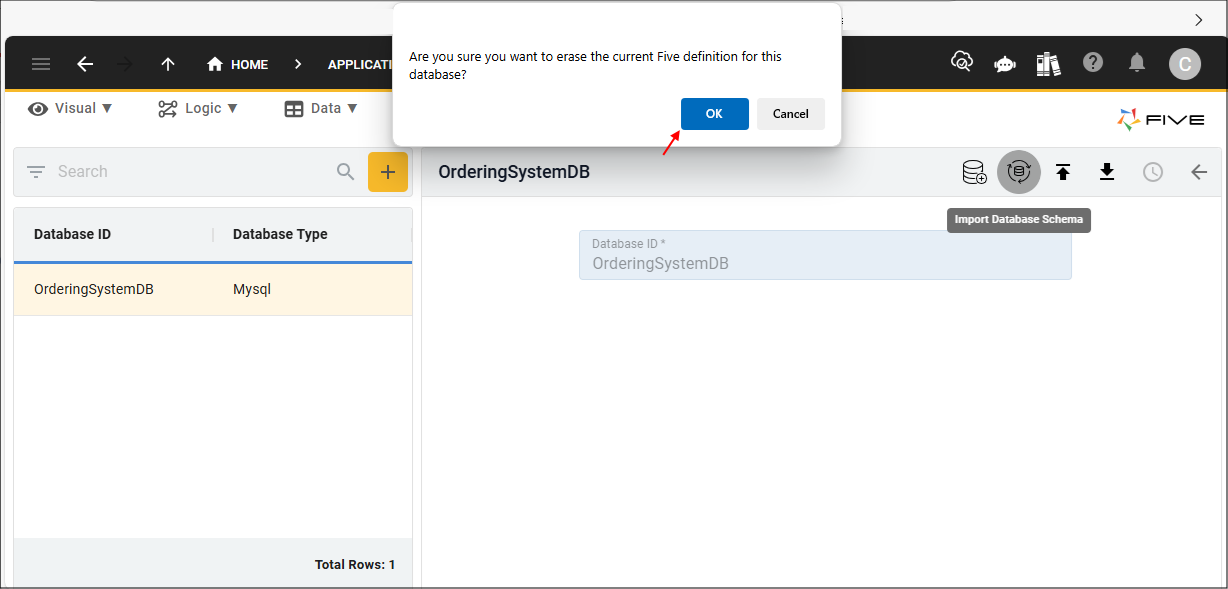
10. Click the Ok button.
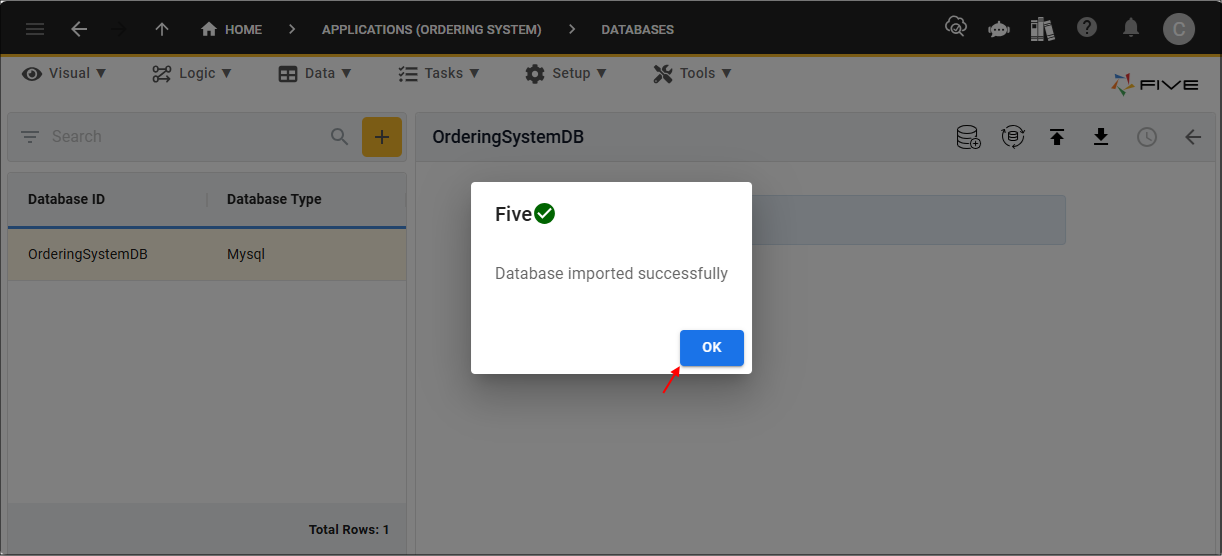
View Your Tables
1. Select Data in the menu.
2. Select Tables in the sub-menu.
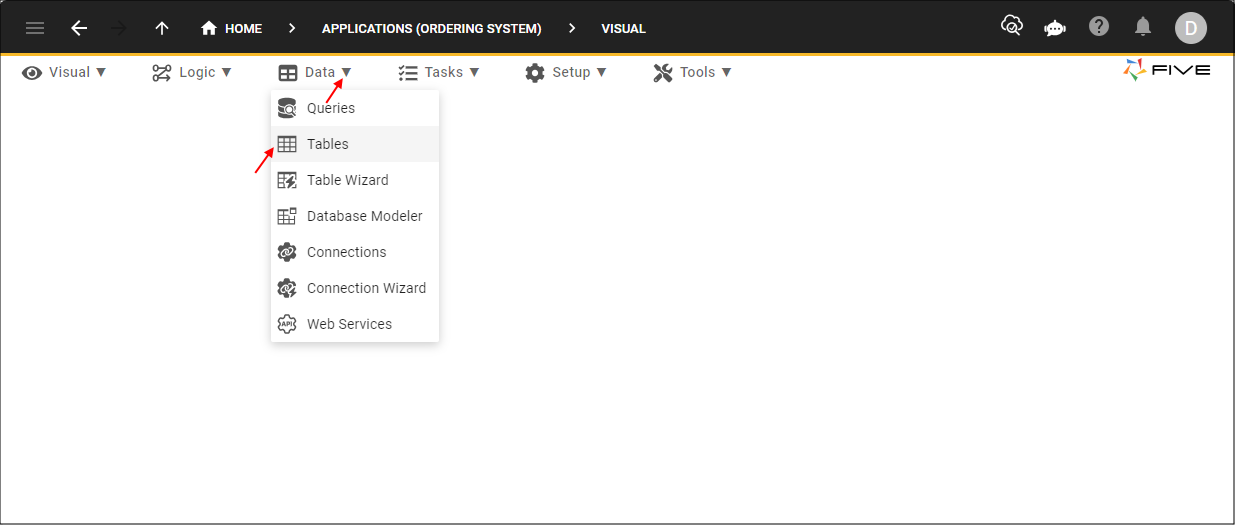
3. Select a table record in the list and click the Fields tab.
